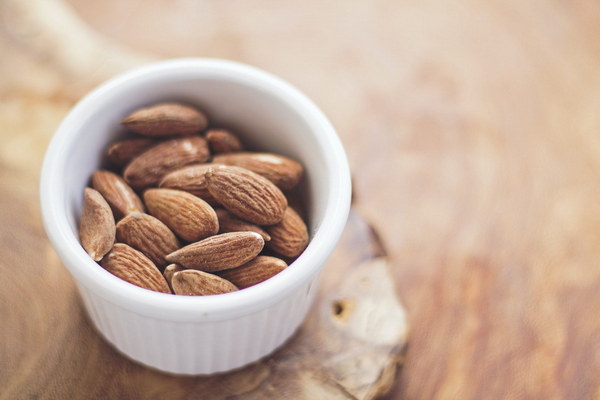Recovering from a Cervical Surgery A Comprehensive Guide to Post-Op Nutritional Support
Recovering from a Cervical Surgery: A Comprehensive Guide to Post-Op Nutritional Support
Undergoing a cervical surgery can be a challenging experience, both physically and emotionally. As the body heals, it requires adequate nutrition to support the recovery process. This article aims to provide a comprehensive guide to the types of nutrients that are essential for post-cervical surgery recovery, along with practical tips on how to incorporate them into your diet.
Understanding the Recovery Process
After cervical surgery, the body goes through a series of healing stages. The first few days are often characterized by pain and swelling, which gradually subsides as the body begins to repair itself. During this time, it is crucial to provide the body with the necessary nutrients to facilitate healing and reduce the risk of complications.
Essential Nutrients for Post-Op Recovery

1. Protein: Protein is essential for tissue repair and healing. Good sources of protein include lean meats, fish, poultry, eggs, dairy products, legumes, nuts, and seeds. Aim to consume about 0.8 grams of protein per kilogram of body weight per day.
2. Vitamin C: This powerful antioxidant helps to boost the immune system and aids in the formation of collagen, which is crucial for wound healing. Citrus fruits, berries, kiwi, bell peppers, and leafy greens are rich in vitamin C.
3. Vitamin A: Vitamin A is important for the maintenance of skin tissue and the healing process. Beta-carotene, a precursor to vitamin A, is found in orange and yellow fruits and vegetables, such as carrots, sweet potatoes, and cantaloupe.
4. Iron: Iron is vital for the production of hemoglobin, which carries oxygen to the body's tissues. Good sources of iron include red meat, poultry, fish, legumes, and fortified cereals. To enhance iron absorption, pair iron-rich foods with vitamin C-rich foods.
5. Calcium: Calcium is essential for bone health and the formation of new tissue. Dairy products, leafy greens, and fortified foods are excellent sources of calcium.
6. Zinc: Zinc plays a role in the healing process and the immune system. Oysters, beef, pork, legumes, and nuts are rich in zinc.
7. Omega-3 Fatty Acids: These healthy fats are anti-inflammatory and can help reduce pain and swelling. Fish oil supplements and foods like salmon, mackerel, sardines, flaxseeds, and chia seeds are good sources of omega-3s.
Incorporating Nutrients into Your Diet
1. Balanced Meals: Ensure that each meal includes a variety of food groups to cover your nutrient needs. Include lean protein, whole grains, fruits, and vegetables.
2. Smoothies and Juices: Blend fruits, vegetables, and protein sources into smoothies for a nutritious and easy-to-consume meal or snack.
3. Protein Powders: Protein powders can be added to smoothies or mixed with water or milk for a quick protein boost.
4. Fortified Foods: Consider consuming fortified cereals, milk, and other foods to ensure you are getting enough of certain vitamins and minerals.
5. Supplements: In some cases, supplements may be necessary to meet your nutritional needs. Consult with your healthcare provider before starting any new supplement regimen.
Practical Tips for Post-Op Nutrition
- Stay Hydrated: Drinking plenty of water is essential for overall health and can aid in the healing process. Aim for at least 8 glasses of water per day.
- Listen to Your Body: Pay attention to your body's needs and adjust your diet accordingly. If you're experiencing nausea or difficulty eating, try smaller, more frequent meals or soft foods.
- Prevent Constipation: Eating a high-fiber diet and staying hydrated can help prevent constipation, which is a common side effect of pain medications and surgery.
- Manage Pain: If you're experiencing pain, ensure you're following your prescribed pain management plan. Eating a balanced diet can help keep your energy levels up and improve your mood.
By focusing on these essential nutrients and incorporating them into your post-cervical surgery diet, you can support your body's healing process and promote a quicker recovery. Always consult with your healthcare provider for personalized advice and recommendations tailored to your specific needs.









